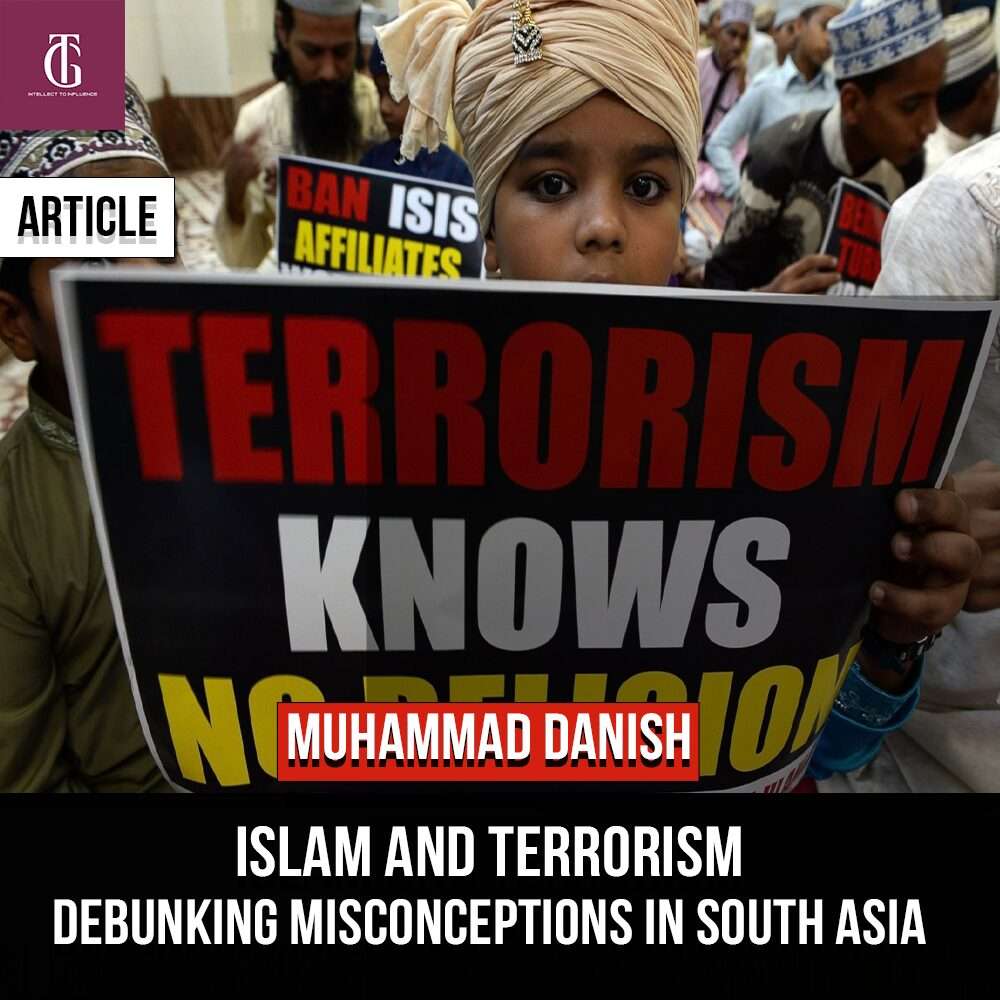
In recent years, the intertwining of Islam and terrorism has become an unfortunate narrative, particularly in the context of South Asia. This misperception stems from a complex interplay of historical, socio-political, and religious factors, perpetuated by media sensationalism and extremist agendas. However, it is crucial to dissect this narrative and shed light on the nuanced realities that often get overshadowed.
First and foremost, it is essential to recognize that Islam, like any other major religion, is multifaceted and encompasses a diverse spectrum of beliefs, practices, and interpretations. At its core, Islam promotes peace, compassion, and justice. The overwhelming majority of Muslims in South Asia, as elsewhere in the world, are law-abiding citizens who abhor violence and extremism.
However, the actions of a small minority of extremists have unfairly tarnished the image of Islam in the region. These extremists, often driven by political grievances or misguided interpretations of religious texts, have carried out acts of terror in the name of Islam. Their actions not only betray the teachings of Islam but also inflict immense harm on innocent lives and communities, both Muslim and non-Muslim alike.
It is crucial to distinguish between Islam as a religion and terrorism as a violent ideology. Terrorism knows no religion, race, or nationality. It thrives on hatred, ignorance, and the exploitation of grievances. In South Asia, factors such as poverty, political instability, and historical conflicts have contributed to the rise of extremist groups, which exploit religion as a tool to justify their heinous acts.
Furthermore, it is essential to challenge the sensationalist narratives perpetuated by certain media outlets and political actors. All too often, Islam and Muslims are unfairly scapegoated for acts of terrorism, perpetuating stereotypes and fostering division. Such rhetoric not only undermines efforts to address the root causes of extremism but also fuels Islamophobia and discrimination.
Pakistan, a focal point in the discourse on Islam and terrorism, has grappled with the scourge of extremist violence for decades. Recent events, such as the brutal attack on the Army Public School in Peshawar in 2014, where over 140 innocent lives, most of them children, were tragically lost, serve as stark reminders of the threat posed by militant groups operating within the country. However, attributing these atrocities solely to Islam overlooks the complex socio-political landscape of Pakistan, where factors such as poverty, political instability, and regional conflicts contribute to the proliferation of extremism. And also, According to the South Asia Terrorism Portal (SATP), which tracks terrorism-related incidents in the region, over 67864 civilians, security personnel, and militants have been killed in Pakistan due to terrorism between 2000 and 2024. This figure includes victims of suicide bombings, targeted killings, sectarian violence, and other forms of terrorism perpetrated by various extremist groups operating within the country.
In neighboring India, the rise of Hindu nationalism has exacerbated tensions between religious communities, leading to instances of violence and discrimination against Muslims. The lynching of Muslims by vigilante mobs, often fueled by religious and political rhetoric, underscores the dangers of conflating Islam with terrorism. Moreover, the discriminatory policies targeting Muslims, such as the controversial Citizenship Amendment Act (CAA), have sparked widespread protests and raised concerns about the erosion of secular values enshrined in the Indian Constitution.
China’s approach to Islam, particularly in its Xinjiang region, has drawn international scrutiny and condemnation. The Chinese government’s crackdown on Uighur Muslims, including mass detentions in so-called “re-education camps,” has been widely condemned as a gross violation of human rights. While the Chinese authorities justify these measures as necessary to combat extremism and maintain stability, critics argue that they amount to cultural genocide and fuel resentment among the Uighur population.
Bangladesh, despite its secular constitution, has faced challenges from extremist groups seeking to undermine its pluralistic society. The targeted killings of secular bloggers and activists by Islamist militants have raised alarm bells about the erosion of freedom of expression and the rise of religious intolerance. However, Bangladeshis have shown resilience in the face of adversity, with civil society movements advocating for tolerance, dialogue, and democratic values.
Sri Lanka, too, has experienced the devastating impact of terrorism, as evidenced by the Easter Sunday bombings in 2019, carried out by a local Islamist extremist group. The coordinated attacks on churches and hotels claimed hundreds of lives and shocked the nation. However, it is essential to recognize that such acts do not represent the beliefs or values of the broader Muslim community in Sri Lanka, which has a long history of coexistence and interfaith harmony.
To combat the scourge of terrorism effectively, it is imperative to adopt a holistic approach that addresses the underlying socio-economic, political, and ideological factors. This includes investing in education, promoting interfaith dialogue, fostering economic development, and strengthening democratic institutions. Additionally, law enforcement efforts must target terrorist organizations and their networks while upholding human rights and the rule of law.
Moreover, religious leaders have a vital role to play in promoting a message of peace, tolerance, and coexistence. Across South Asia, many mosques and Islamic institutions actively denounce terrorism and promote a moderate interpretation of Islam. By amplifying their voices and empowering them to counter extremist narratives, we can undermine the appeal of violent ideologies and foster a more inclusive society.
At the same time, it is essential for governments in the region to address legitimate grievances and grievances that may be exploited by extremists. This includes addressing issues such as poverty, inequality, corruption, and marginalization, which can fuel feelings of injustice and resentment. By promoting social justice and inclusivity, governments can undermine the appeal of extremist ideologies and build resilience within communities.
Media organizations have a responsibility to report accurately and ethically, avoiding sensationalism and bias that stigmatize entire communities. Civil society actors, including religious leaders, activists, and grassroots organizations, play a vital role in fostering dialogue, promoting interfaith harmony, and countering extremist narratives.
In conclusion, the association between Islam and terrorism in South Asia is a misperception that must be challenged and debunked. Islam, like any other religion, promotes peace, compassion, and justice. The actions of a small minority of extremists should not overshadow the values and beliefs of the vast majority of Muslims in the region. By addressing the root causes of extremism, promoting dialogue and understanding, and fostering inclusive societies, we can build a future where Islam and terrorism are no longer conflated.

Muhammad Danish
Muhammad Danish, a student of Bs Political Science at School.of Politics and International Relations Quaid I Azam University.





